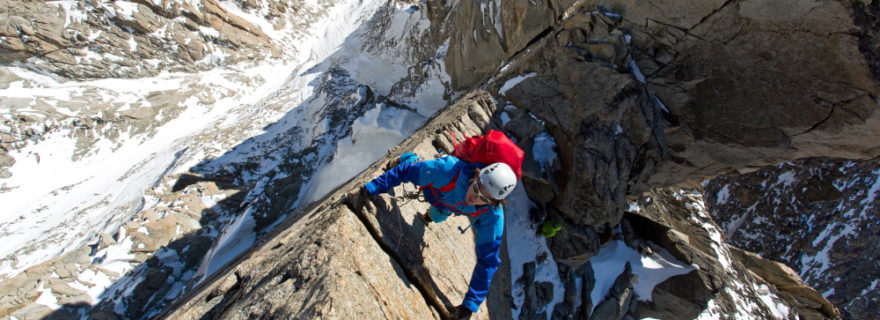'Mountain'
Movie Rating:
3
You wouldn’t think it was possible to make a movie purely about mountains, and you especially wouldn’t think it was possible for that movie to be dogged down by the pretentions of the person who made it. Nonetheless, that’s what we’ve got in ‘Mountain’, the new documentary from director Jennifer Peedom (‘Sherpa’).
The film is an ode to those big rock formations and the people who scale them. It’s partly educational, partly poetic, and always filled with remarkable high-flying imagery. The pictures are gorgeous and remarkable, but even at a trim 70 minutes, ‘Mountain’ feels overlong.
The movie starts in an oddly self-conscious manner. We see images of the Australian orchestra preparing their instruments to pound out the score and Willem Dafoe in a recording studio about to spit out his haggard narration. Why? It’s never clear. Maybe to stretch the running time a little further? Regardless, it’s an awkward start to an awkward documentary. Next, the audience is treated to the doc’s first absolutely astounding image of a man on a mountain and it’s hard not to get drawn in. A camera swoops in from high above a mountain to catch a free climber dangling off the side without any safety harness. It’s a ravishing shot and an image guaranteed to inspire vertigo in even the toughest viewer. Then we’re off to the races.
The best sequences in ‘Mountain’ are entirely visual and visceral: a mountain biker perched at the top of treacherously rocky terrain barely wider than his bike about to take off down the side; base jumpers leaping through a net into the massive cavern below; wingsuit-sporting nutjobs flying between peaks; tightrope walkers doing their thing; climbers; daredevils. All are caught in the act of defying or embracing the laws of gravity from woozy heights. All are sumptuously shot by Jennifer Peedom and cinematographer Renan Ozturk using a variety of formats and techniques for maximum majesty. All are backed with classical compositions arranged by Richard Tognetti and performed vividly by his orchestra to lend whimsy and gravitas to the visuals. The montages weaved together are stunning and impactful. It’s designed for theatrical exhibition and to leave audiences floored by the power of film form and natural beauty. Unfortunately, that’s not enough for a feature-length movie and everything else feels like filler and tedious navel-gazing.
The film offers perfunctory lessons about the history of mountain climbing that feel confused and unfocused, often relying on archival footage that can’t come close to what the filmmakers captured themselves. Willem Dafoe gamely reads along the words that have little purpose, lending them drama and meaning by working his grizzled voice like one of the instruments in the orchestra. When he’s connecting footage and spinning stories, that’s fine. However, Peedom also wants ‘Mountain’ to be some sort of poetic essay movie, and that’s where it all falls apart. No matter how hard Dafoe tries, the words become increasingly meaningless and Peedom struggles to verbalize what her film does best through just image and music.
By the time Peedom starts forcing Dafoe to say lines like, “Mountains restore our wonder and challenge our arrogance,” it’s hard not to roll your eyes to the back of your head, even though that means you’ll miss the next wondrous montage. It’s a shame that there’s no theatrical distribution model for documentaries less than an hour. Condense ‘Mountain’ to the finest images that Peedom and her crew captured over a worldwide shoot and this would be one of the most astounding cinematic feats of the year. Add in all the pretentious and repetitive filler and you have merely a decent doc trying too hard to be more. Still, it’s worth seeking out theatrically for the eye and ear candy alone, even if it’s not nearly as strong of a movie as it strives so desperately to be.



